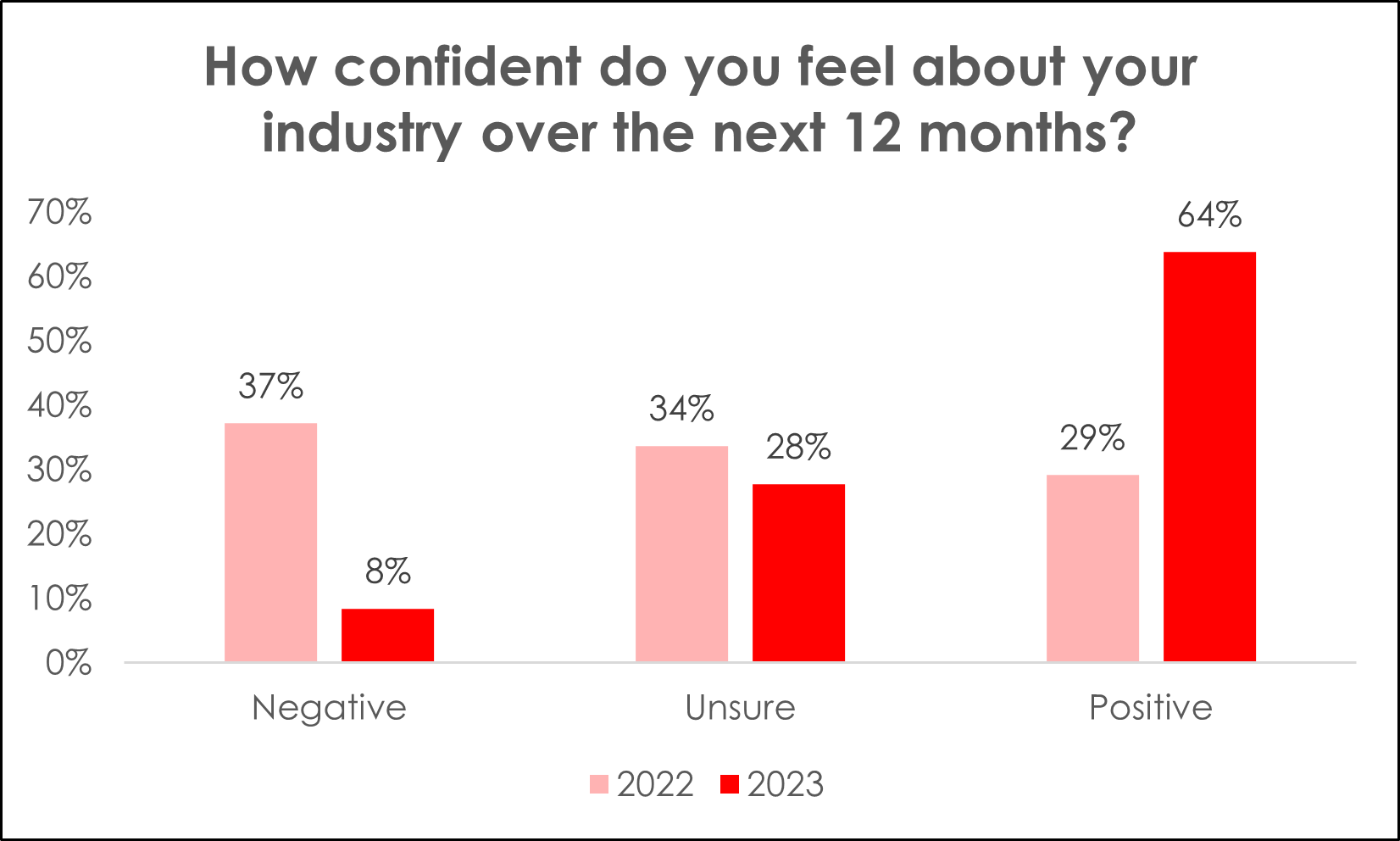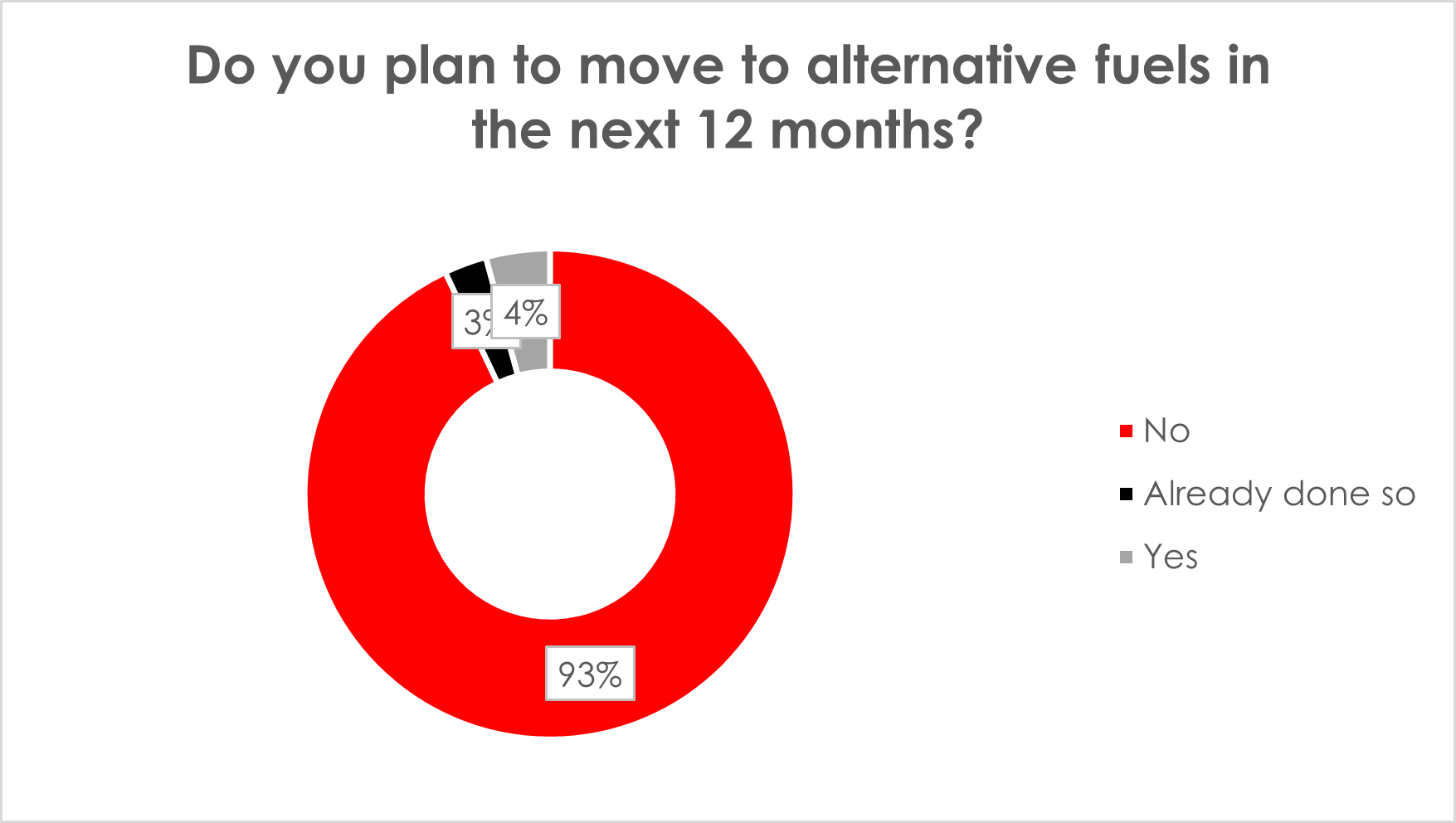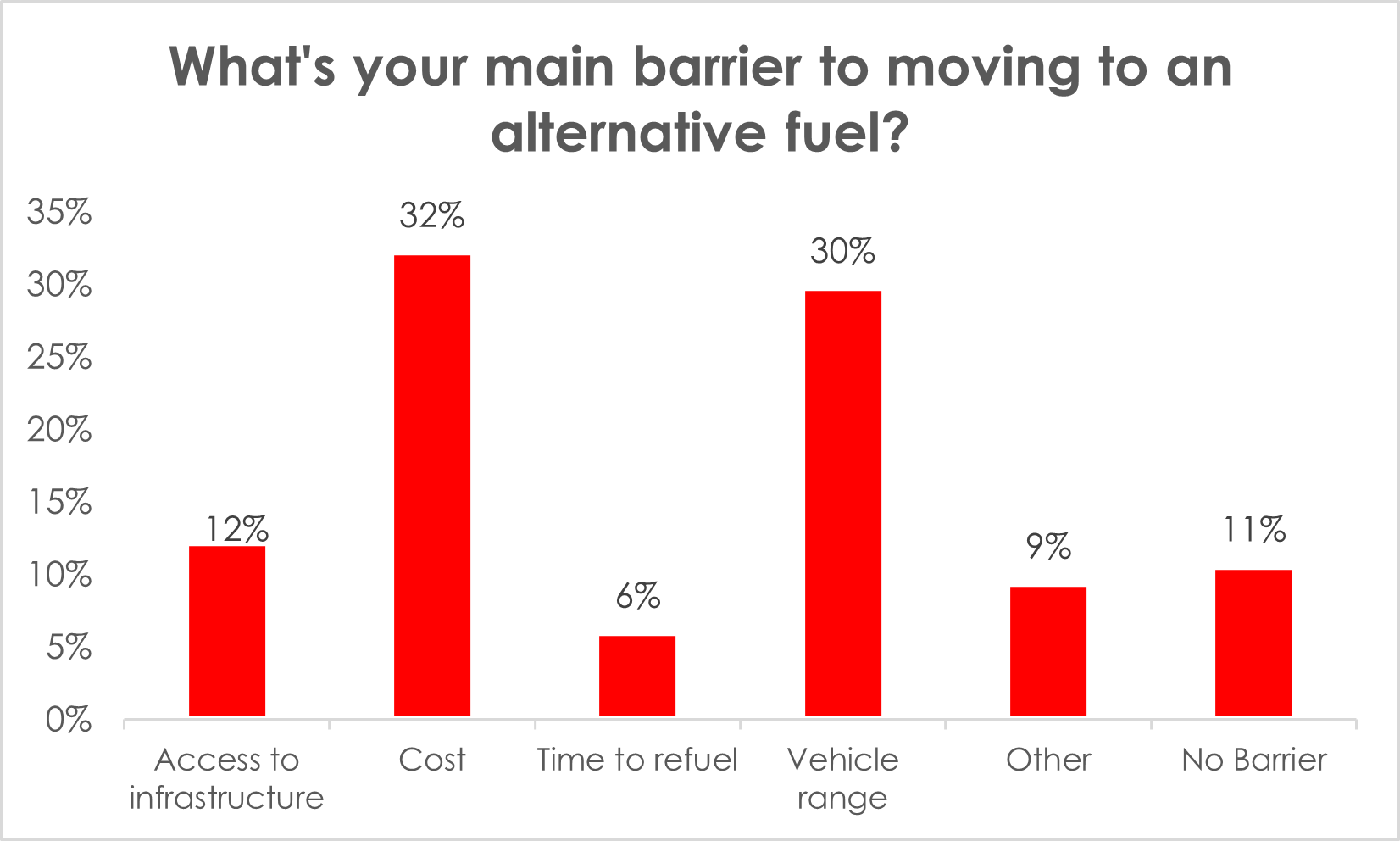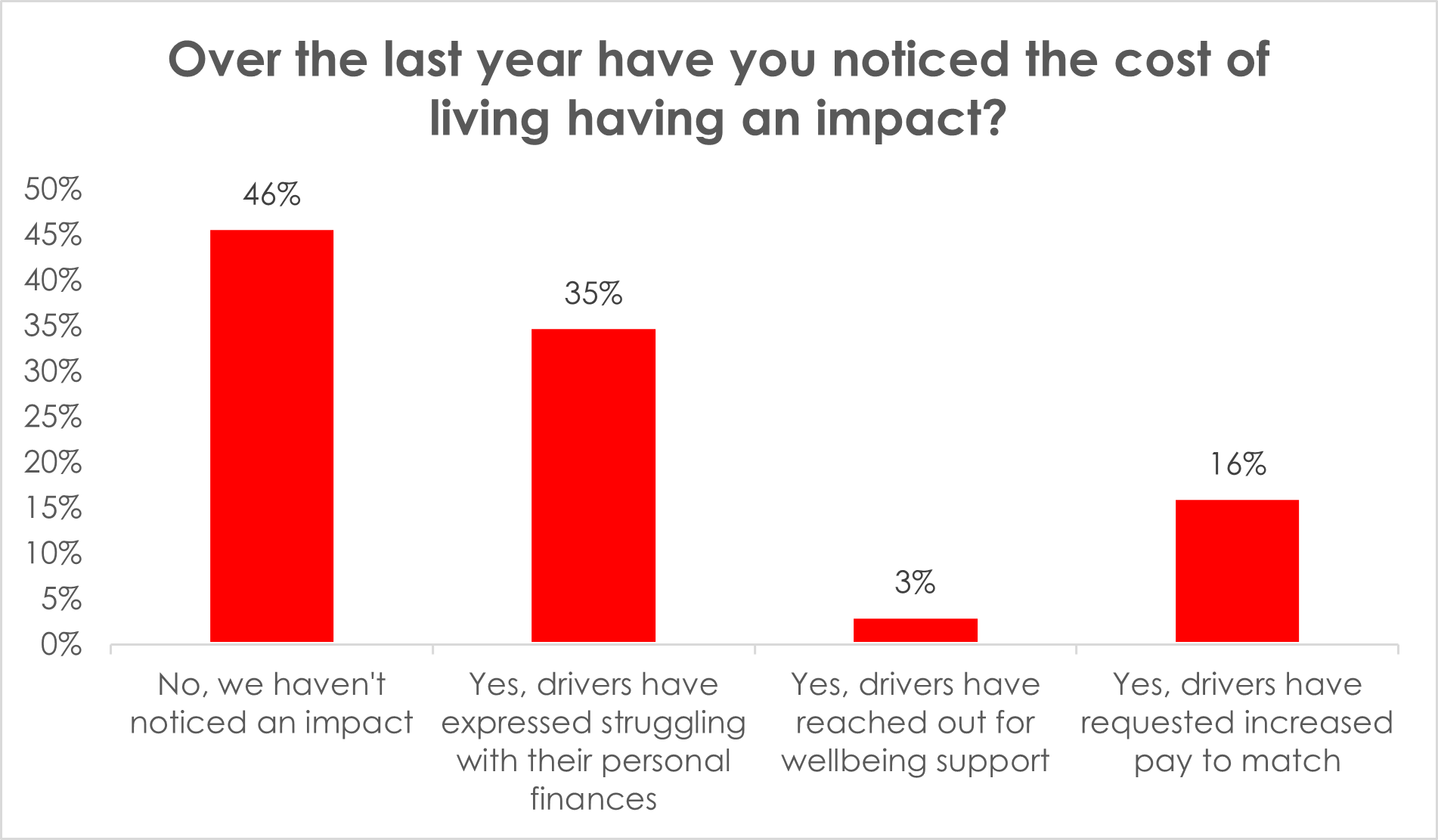As part of a recent study, Right Fuel Card asked business fuel users from various industries about the current challenges their businesses face and questioned whether they would consider using alternative fuels soon.
The survey revealed that most businesses feel much more optimistic about the future than they were 12 months ago. However, the level of confidence varied depending on the industry, with haulage firms much more pessimistic than those in the building, construction, and engineering sectors.
One thing that all industries seem to have in common is a reluctance to switch to alternative fuels in the short term despite the upcoming ban on the sale of new petrol and diesel cars in 2030.
Businesses are starting to feel more optimistic about the future
Our last customer survey was carried out in June 2022 when fuel prices were at their peak with no obvious immediate end to price increases in sight. In addition, the haulage industry was struggling with driver shortages which had a wider impact on many industries. Unsurprisingly, many sectors had a negative outlook at the time.
The latest survey reflects a period with a cost-of-living crisis which has seen inflation peak in double figures and interest rates continuing to rise. However, at the time of the survey, pump prices had started to fall providing some relief, plus there is the potential for energy cost decreases on the horizon.
Despite ongoing cost challenges, many businesses are feeling optimistic about the future. A surprising 64% felt positive or very positive about the next 12 months compared to just 29% the previous year.

Businesses are in no rush to move to EV
The UK Government and vehicle manufacturers have been focussing their attention on EV technology for several years. Although the use of other alternative fuels, such as hydrogen and HVO, is now being more widely considered, Electric is generally regarded as the primary solution for decarbonisation.
However, there are still many barriers to alternative fuels deterring businesses from making the switch.

An overwhelming 93% of respondents stated that they have no plans to move to alternative fuels in the next 12 months.

A small proportion of respondents raised concerns about whether moving to EV was truly a “green” option given the impact of mining for materials need to create, and the disposal of EV batteries.
However, most respondents raised concerns around cost and infrastructure suggesting that the move to alternative fuels is accepted as inevitable even if not seen as personally desirable.
A key issue impacting the move to alternative fuels is the high purchase cost of vehicles which many are unable to afford in the current financial crisis. Although running costs for EVs are generally lower than traditional ICE vehicles, the initial investment is off-putting, particularly for those businesses that have a large number of vehicles in their fleet.
The limited vehicle range of alternative fuels is also a barrier for business fuel users as they often travel long distances and the frequent need to recharge would delay deliveries and increase downtime, squeezing margins and impacting profits. However, improvements have been made to the driving range of EVs to help meet the needs of businesses, with some EV vans now offering over 200 miles of range.
As the current infrastructure, particularly for EVs, has focused on the consumer car market, HGV operators face a further wait before alternative fuel vehicles become cost-effective to buy and run.
Over half of businesses have noticed a cost-of-living impact
With inflation peaking at 11.1% towards the end of 2022, there has been much discussion on the various impacts the cost-of-living crisis has had. Although 46% stated they had not noticed an impact, we recognise that some staff may not have felt able to raise concerns. As such, the real impact may be higher.

A positive outlook despite the immediate economic conditions
Although largely positive in the future, businesses are still struggling with increased costs which are likely adding to the reluctance to move to alternative fuels. We expect there to be an increase in infrastructure development for alternative fuels and will continue to track this move. In the long term we, like our customers, hope to see the squeeze on budgets, both business and personal, decrease.
Right Fuel Card can help businesses with the cost of diesel and petrol as we offer a wide range of fuel cards that are designed to save you time and money. Use our quick comparison tool to find out which fuel card is best for your business, or alternatively, you can contact our team at 0113 202 5110 and we can discuss your options further.
Note: Survey conducted in May 2023 to business fuel card users, receiving 854 responses.



